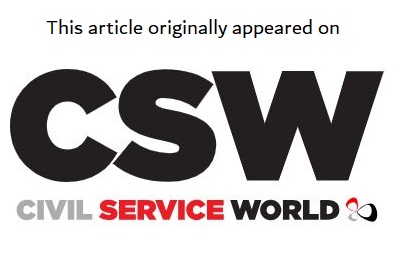In evidence given to MPs, outgoing civil service chief operating officer Alex Chisholm acknowledges that Whitehall pay packets have become a ‘chronic problem’ facing departments, especially in filling tech positions
The long-term failure of officials’ pay to keep pace with inflation and the wider economy has put departments on a course that will require radical change, civil service chief operating officer Sir Alex Chisholm has acknowledged.
Chisholm – who is due to leave his joint role of COO and Cabinet Office permanent secretary this spring – made his comments at a Public Accounts Committee hearing this week. A recent National Audit Office report confirmed all civil service grades apart from the most junior one, administrative assistant, had seen real-terms salaries reduce between 2013 and 2023. Chisholm was asked if he was concerned about the effects on civil service recruitment and retention.
“It is a concern, but to use pseudo-medical language, it’s a chronic problem rather than an acute problem,” he replied. “We can’t see that there’s a lot of people suddenly leaving us saying… ‘I’m not prepared to work here for pay reasons’.”
Chisholm accepted that pay was the most common reason for so-called “failed” recruitment campaigns, where departments were not able to find suitable candidates for specific roles – particularly “competitive” digital, data and technology, jobs.
Related content
- MoJ’s adoption of digital pay framework has enabled £22m boost to salary offers
- Digital skills ‘a huge challenge’ for Levelling Up department
- ‘Part of the team’ – secondment scheme to bring workers from tech giants into government
He said last year’s pay settlement for civil servants, and the one-off £1,500 cost-of-living payment that was eventually bolted on, had “stabilised” dropping satisfaction levels with the overall pay and benefits offered to rank-and-file officials. But he also said the trend identified by the NAO was a significant challenge for departments.
“If you look at it on a 10-year view, paying less and less in real terms, year on year, at every grade bar the bottom one, must be storing up increasing problems of competitiveness in the wider economy,” he said. “Effectively, the discount required to work in the civil service has been growing for all of that period. So that is why, as a key part of the Civil Service People Plan, it’s not only trying to fix the recruitment time to market and other immediate issues like that. But there is a much bigger reward strategy that needs to be produced as part of that. Because I think that is a really big strategic issue for the civil service.”
Chisholm said that the solution would be a smaller, “more agile”, and more highly paid civil service – along lines set out by Cabinet Office minister John Glen last month. The outgoing COO also recently claimed that the use of artificial intelligence and automation tools could take on workload from “tens of thousands” of current government roles.
Union reaction
Fran Heathcote, newly-elected general secretary of the PCS union, welcomed Chisholm’s admission of the problem posed to civil service recruitment by low pay. But she questioned the solutions departments were using to deal with it.
“Discredited policies such as performance-related pay, which has been proven to be discriminatory are not the cure,” she said. “The only remedy for the problems stored up by years of real-term pay cuts, is to reward our hard-working members with the pay rises they deserve.”
Mike Clancy, general secretary of the Prospect union, said the organisation’s civil service members reported that the “acute” problem referenced by Chisholm was imminent.
“If the government doesn’t sort the pay problem, they will very soon see a mass exodus of skilled staff,” he said.
Clancy added that Prospect members reported that the issue of “failed” recruitment was a particular problem in specialist agency roles where there were direct private-sector wage comparators.
“This means that, more and more, jobs are being done by less experienced people putting increasing pressure on workloads and reducing the ability of agencies to adequately fulfil their functions,” he said.





